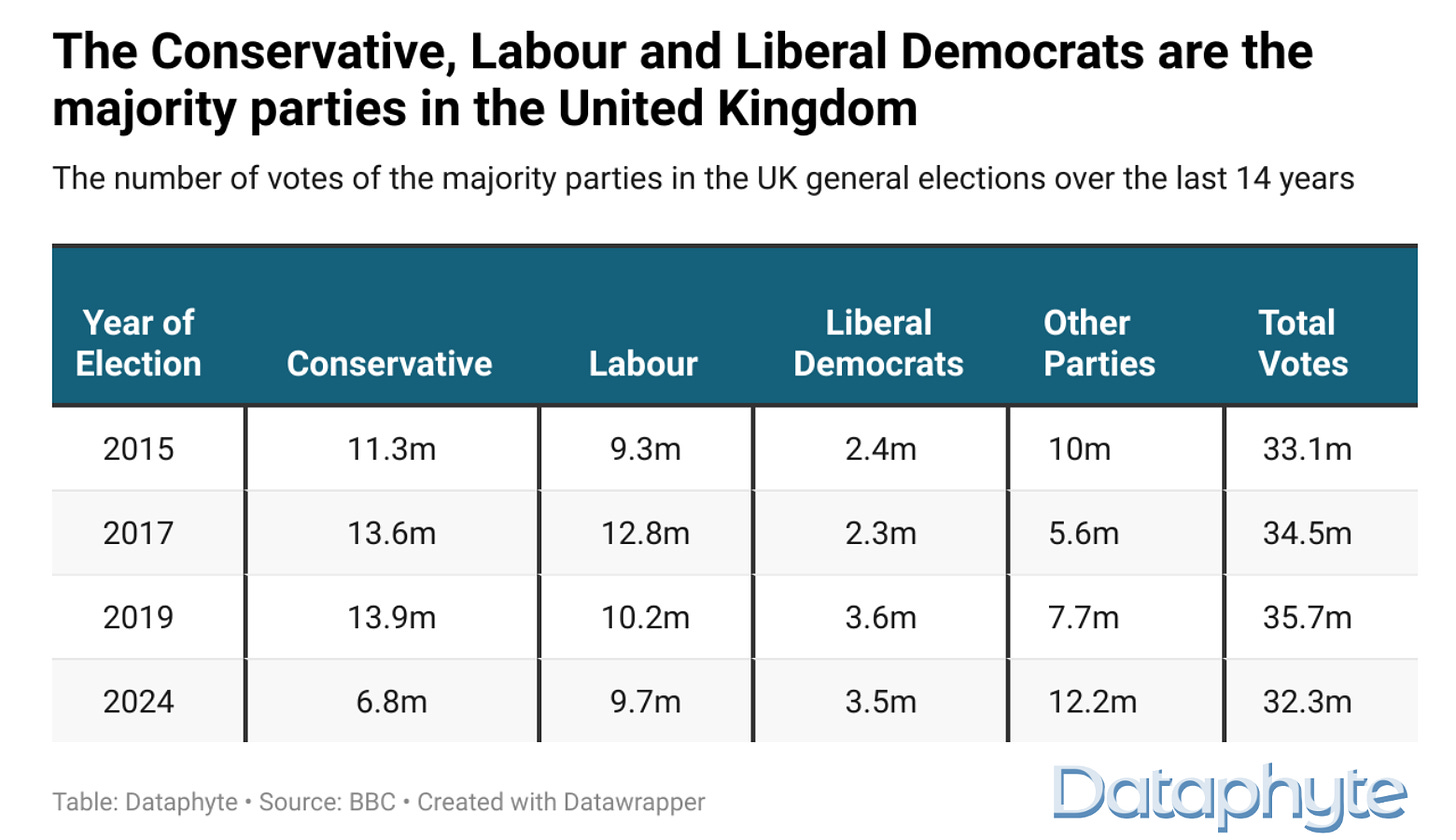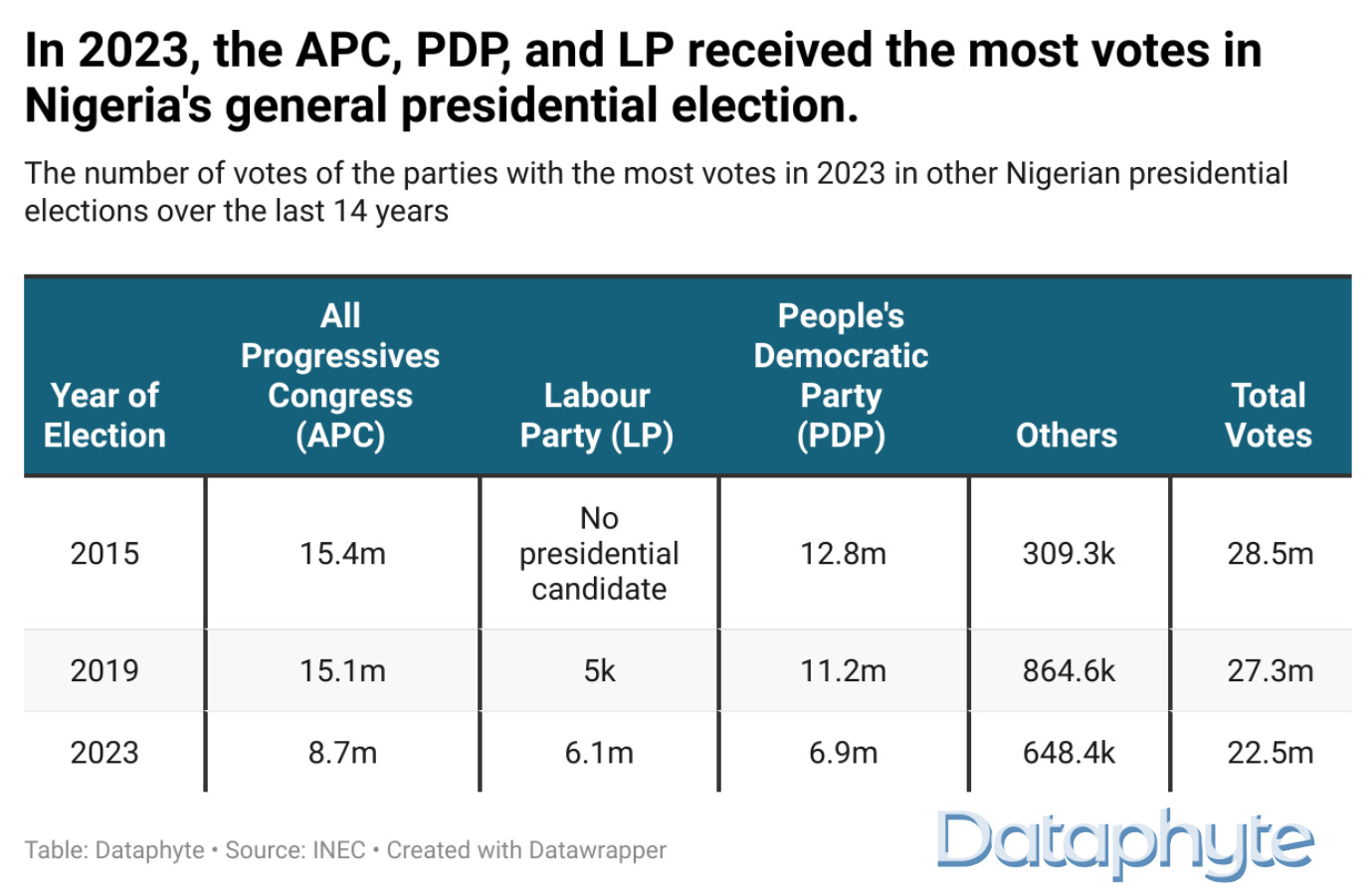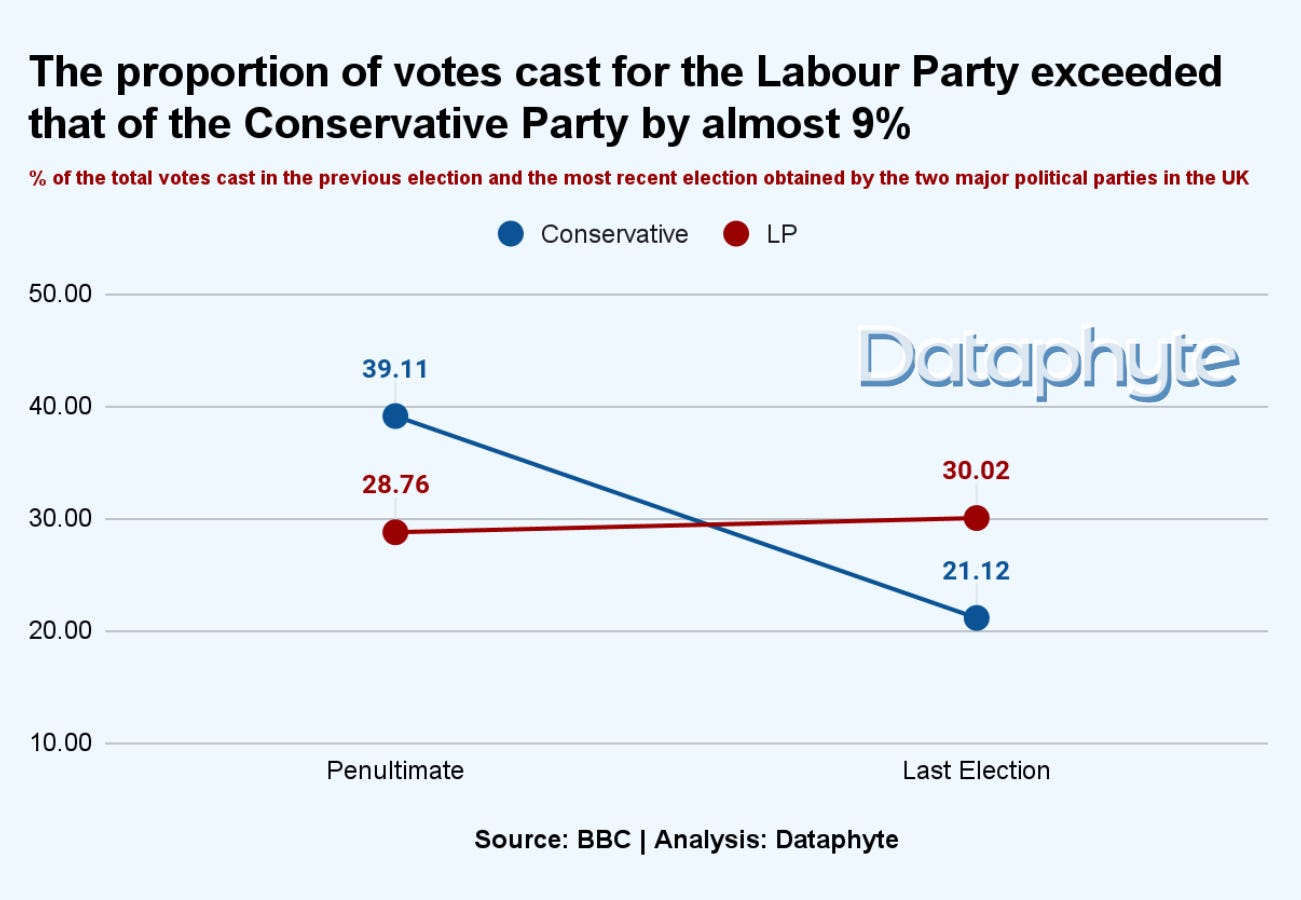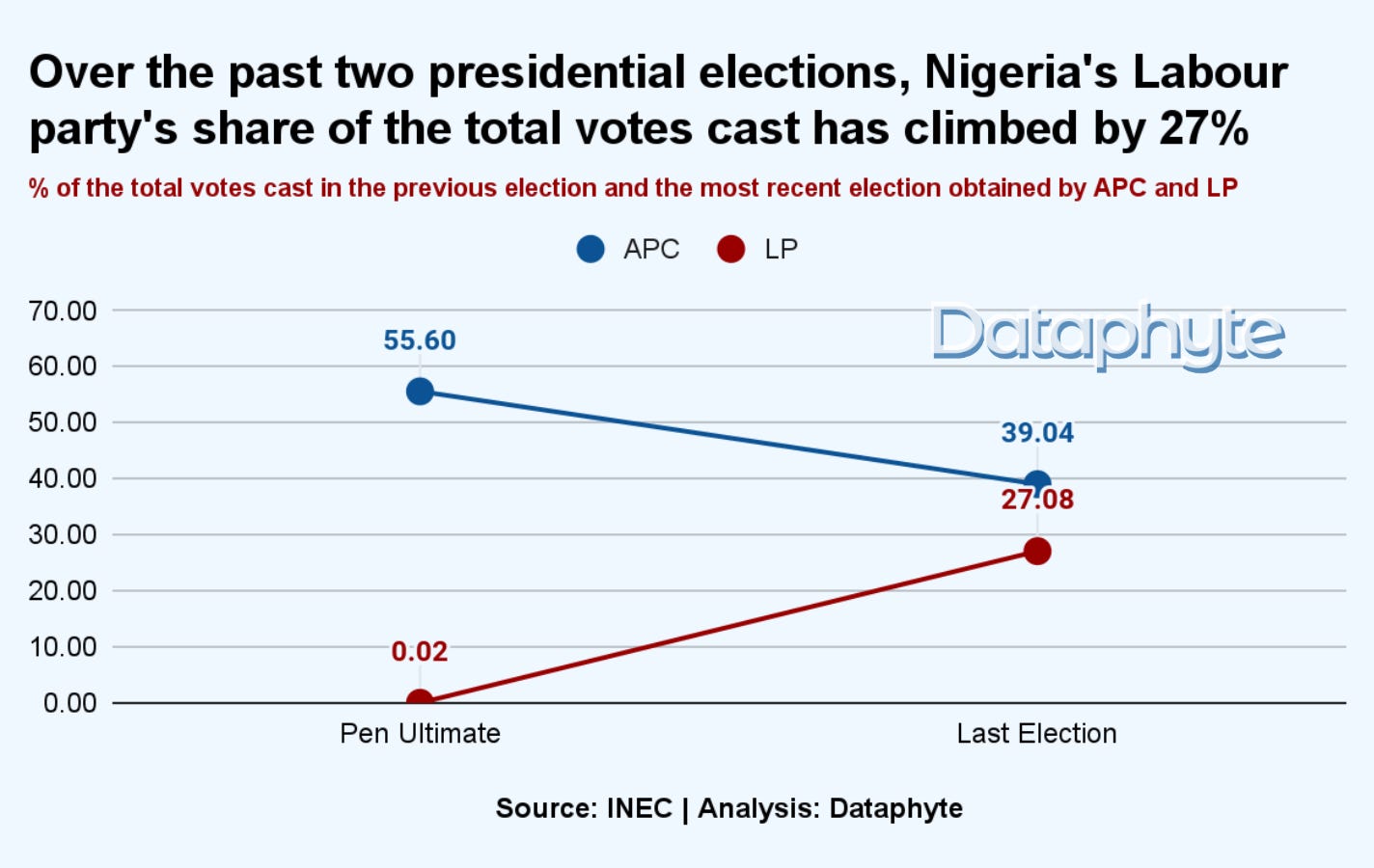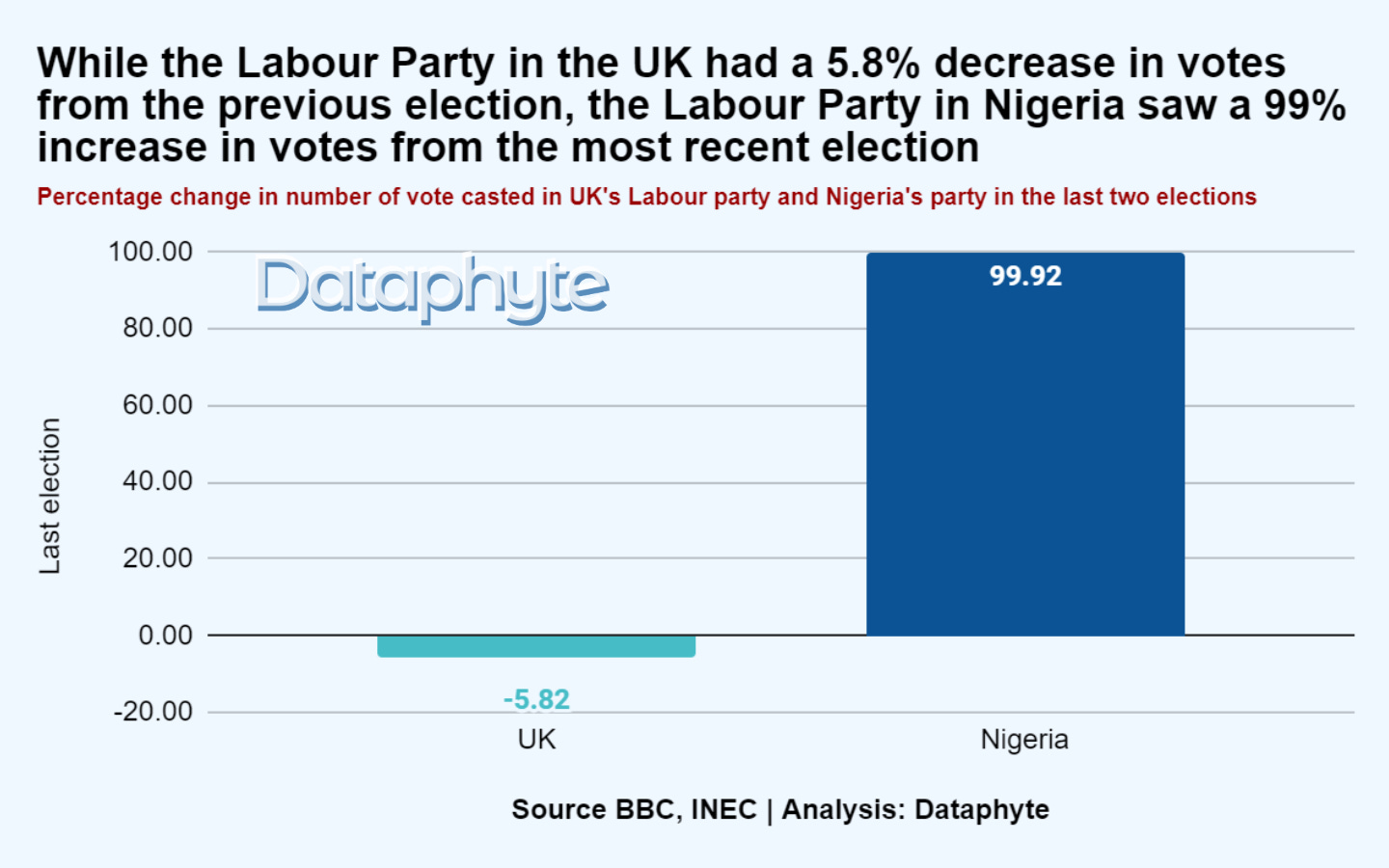Vote of Revolt: Labour Gains in the UK and Nigeria
The British public has voted for the Labour Party in a landslide win, best described as a vote of revolt against the Conservative Party's political inconsistency and economic insensitivity over the past 14 years.
This mirrors Nigeria's recent election, where voters turned away from the incumbent party towards Labour and other parties. Both instances reflect growing frustration with the poorly conceived policies and austerity measures imposed by the incumbent parties.
In the UK and Nigeria, the votes were not necessarily cast out of a strong belief in the competence of the chosen candidates but rather as a civil revolt against the perceived failures of the incumbent parties.
The danger of such revolt voting is that it does not necessarily result in the election of better representatives but merely removes the current unsatisfactory ones.
This means that people are voting not for good governance but against bad governance, aiming, at least, to oust those they consider ineffective.
A "vote of revolt" is generally used to describe an instance in which voters vote against the existing government or well-established political parties to voice their displeasure with the political or social climate as it currently exists.
This frequently occurs during elections when the public believes the current leadership isn't doing enough to solve their issues or implement the improvements they want.
The Labour Party achieved a decisive victory in the UK elections on the 4th of July, 2024, according to exit polls, bringing an end to 14 years of Conservative Party governance and paving the way for a new centre-left government.
The results of the 2024 election show how unstable the political climate is becoming as voters are shifting away from traditional options, creating a more diverse and uncertain political landscape.
Similar to the situation in the UK, Nigeria's Labour Party made significant progress in recent presidential elections.
While they did not achieve a landslide victory, the party moved from a marginal position in the 2019 elections, where they received only 5,000 votes, to securing the third-highest number of votes in the 2023 presidential elections.
This marks a substantial improvement and indicates growing support for the Labour Party in Nigeria.
In terms of the percentage of votes cast, the Conservative Party experienced a significant drop of approximately 18%, indicating a major loss of popularity among voters.
In contrast, the Labour Party's share of the vote increased slightly by 1.26%, suggesting a modest but favourable shift in voter support towards Labour.
For the Nigerian Labour Party, there was a dramatic increase in voter support, from a negligible 0.02% of the total vote cast in the penultimate election to a substantial 27.08% in the most recent election, which many have attributed to the emergence of a new player in the political party.
The UK Labour Party stabilised its total number of votes in the 2024 election, but it did not considerably increase its proportion of the vote.
This implies that Labour profited from the Conservative Party's defeats, probably drawing support from those who were dissatisfied with the Conservatives.
Even while Labour did not increase its overall percentage of the electorate, this change helped it retain its support base.
The Danger of a Vote of Revolt
While voting is a powerful tool for expressing disapproval and demanding change, voters must carefully consider the broader implications and potential risks associated with casting a revolting vote.
Supporting politicians or parties with extreme agendas or limited experience can lead to significant governance challenges.
Inexperienced officials may struggle to manage complex operations, resulting in ineffective governance.
Another significant concern is inconsistent policy. Revolting voters frequently support politicians or parties with special interests over those with broad policy platforms. This may imply solving short-term problems takes the upper hand over long-term national objectives.
Prioritising solving pressing issues over long-term planning and stability can be detrimental.
The idea of "wasted votes" is another important effect of revolt voting. Voters' concerns may remain unmet when a sizable percentage of protest votes are cast for parties that have little prospect of winning.
This may encourage political cynicism, in which a sense that votes are wasted and dissatisfaction with the democratic process results in disengagement, according to the Polyas election glossary.
Long-term effects of revolt voting include the potential strengthening of fringe or populist parties.
Over time, this can lead to unforeseen changes in the political landscape, shifting the balance of power and influencing future elections and policy directions.
Populism and Coups, The New Normal
While revolt voting is a powerful way to voice discontent, there are several specific risks associated with it, such as the emergence of populism, military takeovers, and coups, which are frequently characterised by low voter turnout and political indifference.
In Europe, political indifference and poor voter turnout have both fueled and resulted from the rise of populism, according to a research, “Economic insecurity and the demand for populism in Europe.”
Populist parties like the Alternative for Germany (AfD), the National Rally in France, and the League in Italy have capitalised on public dissatisfaction with the status quo.
They often promise to address issues such as immigration, economic inequality, and national sovereignty to win over disillusioned voters.
This populist surge can lead to more polarised and fragmented political systems, making it challenging to form stable governments.
According to an analysis by more than 100 political scientists in 31 different countries, a record 32% of European voters supported anti-establishment parties in the 2023 national elections, up from 20% in the early 2000s and 12% in the early 1990s, as reported by The Guardian.
Similar instability in Africa has resulted in military takeovers in nations like Burkina Faso, Mali, and Niger. Political unrest in these countries has frequently resulted in military interventions, with the military portraying itself as a stabilising factor amid popular unrest.
For instance, in Mali, coups in 2012 and 2020 were sparked by discontent with how the government handled security and economic concerns.
In Burkina Faso also, President Blaise Compaoré was overthrown in 2014 and replaced by military forces as a result of widespread demonstrations against his attempts to extend his term.
Nine coups have occurred in West Africa, Central Africa, and the Sahel since 2020. The most recent ones took place in Sudan, Burkina Faso, Guinea, and Gabon.
The consequences of such upheavals are significant, causing instability, weakening democracy, and worsening social and economic issues.
While revolt votes express discontent, they carry risks that voters must consider carefully.
Look at the Bigger Picture: Voting When There are Limited Options:
When faced with limited voting options, it is crucial to make an informed choice. According to Robert Dahl in "A Preface to Democratic Theory," voters should thoroughly assess candidates by examining their qualifications, records, and policies without being swayed by party affiliations.
This approach ensures that voters consider how each candidate's positions on important issues align with their own goals and values.
Voters should also adopt a broader perspective, focusing on the overall direction they want their nation, state, or community to take.
Even if no candidate is perfect, this long-term view helps align their choices with more expansive visions and objectives.
It is important to remember that voting against poor performance is not equivalent to voting for good governance.




